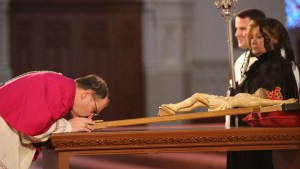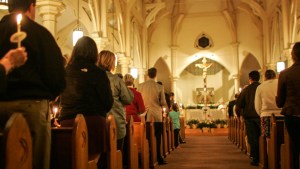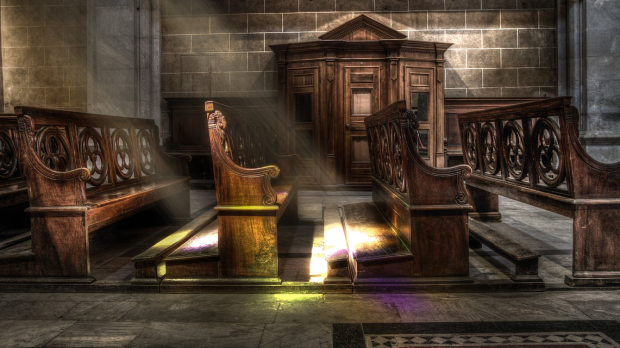One of the strangest days in the liturgical calendar is Good Friday, when the Church does not celebrate the sacrifice of the Mass. In place of the Mass is a “service,” commemorating Jesus suffering and death.

Read more:
Why is there no Mass and only a “service” on Good Friday?
Similarly, historians believe that Holy Saturday was also a day that did not have a Mass. Instead, Christians held an all-night vigil that started in the middle of the night on Saturday and didn’t end until the first rays of dawn when the celebration of Mass began on Easter morning.
Author Herbert Thurston gives a brief explanation in his book, Lent and Holy Week.
[T]he Mass which is now sung on Holy Saturday…was not originally a Mass for Holy Saturday at all, but coming at the end of the long ceremonies of the great vigil, was in reality the midnight Mass of Easter Sunday. Probably in the earliest stage of the celebration this point was not reached until long after midnight, when the day was already beginning to break. There was every reason then why the joyous exultation of the Resurrection should find its first expression there. Theoretically Holy Saturday, like Good Friday, was an ‘aliturgical’ day, a day without a Mass.
The liturgy was eventually shortened and pushed back earlier in the evening, becoming the Easter Vigil that we celebrate today.
It makes sense that Holy Saturday would be a day without a Mass, as it reflects the general “silence” that permeates the day. Jesus lays in the tomb on this day and all the world eagerly waits for what happens next.
An early Christian homily for Holy Saturday best summarizes this theme.
What is happening? Today there is a great silence over the earth, a great silence, and stillness, a great silence because the King sleeps; the earth was in terror and was still, because God slept in the flesh and raised up those who were sleeping from the ages. God has died in the flesh, and the underworld has trembled.
This tradition can help us enter into the spirit of the day, as we wait patiently in silence for the celebration of Jesus’ resurrection. May we use this time wisely and foster within our hearts a great longing for the glorious coming of Jesus into our hearts.

Read more:
Here’s a step-by-step guide to the Easter Vigil

